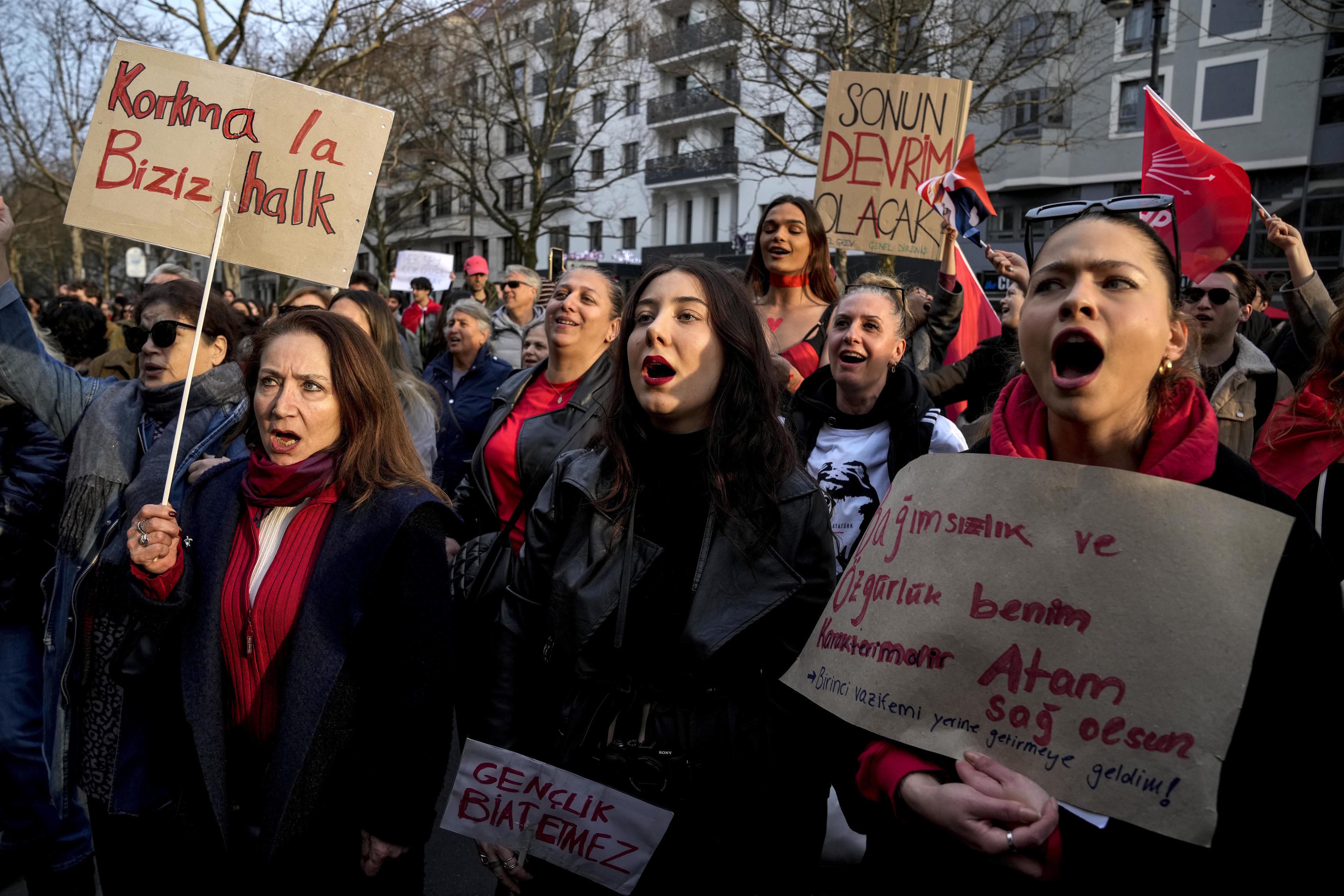The collapse of the lira, the stock market, price instability, the rise in credit costs... everything that Recep Tayyip Erdogan's reelection in 2023 had tried to fix in recent years to alleviate social discontent due to the lack of economic stability has crumbled, returning Turks to worse days. And also to investors who had regained faith in the country's potential in recent years.
The arrest of Ekrem Imamoglu and the climate of confrontation that has taken hold in the country since last week have had a strong economic impact: investors who have been able to liquidate positions have sold off, and the Istanbul Stock Exchange plummeted yesterday with the government urgently banning short positions that had attracted speculation to profit from losses. Yesterday, the Istanbul stock market was recovering from its worst week in almost two decades.
Meanwhile, the Turkish lira depreciated to the point of forcing the Central Bank to intervene by selling various currencies worth, according to unofficial sources, between 15,000 and 20,000 million dollars to stabilize the currency.
The crisis triggered by Imamoglu's arrest is already having a strong impact on Turkey, an open economy that relies on services and industry and has experienced different stages in Erdogan's over 20 years of presidency but still depends on foreign investments, tourism, and exports, with the eternal promise of stabilizing to take advantage of its potential.
Spanish investment has followed the general trend. Since Erdogan's reelection in 2023, projects in renewable energies, construction, tourism, or the agri-food sector have channeled most of the investment, with BBVA as a prominent player due to the acquisition of Garanti, a financial institution in which it entered in 2011 and has invested over 8,000 million euros.
Meanwhile, commercial relations have followed a growing trend, reaching nearly 9,000 million euros annually in both imports and exports, with a small surplus in favor of Turkey of 354 million euros in 2023, according to data from the Institute of Foreign Trade (ICEX).
The country is well aware that crises like those triggered by imprisoning opponents damage its image to an extent that translates into a harsh economic blow. Commitments that guaranteed stability to investors and protection to citizens are now in question, with a third of the population earning a minimum professional wage that has had to keep up with the rise in prices. The Turkish economic policy objectives of 2023 were outlined in its 12th Development Plan (2024-2028) and the Medium-Term Program (2024-2026). They promised to strengthen the rule of law, democracy, and fundamental rights, which have been put on hold with Imamoglu's imprisonment.
Translated into concrete measures, the result was supposed to be the stabilization of the lira and control of inflation. After seeing prices soar by nearly 80% in 2022, Erdogan admitted through actions that defining interest rates as "the root of all evil" was an ineffective solution. The interest rate rose from 8.5% in May 2023 to 50% in March 2024, offering clear signals to international markets that Turkey was willing to stop being an exception to economic orthodoxy. However, results are slow to materialize, and with inflation hovering around 40%, testing domestic economies, the influx of specialized investment funds speculating with such margins has been prominent in the last year. With the fear unleashed by the disorder of recent days and restrictions on market operations, short-term investors have fled, while those considering entering the country may have to think twice.
